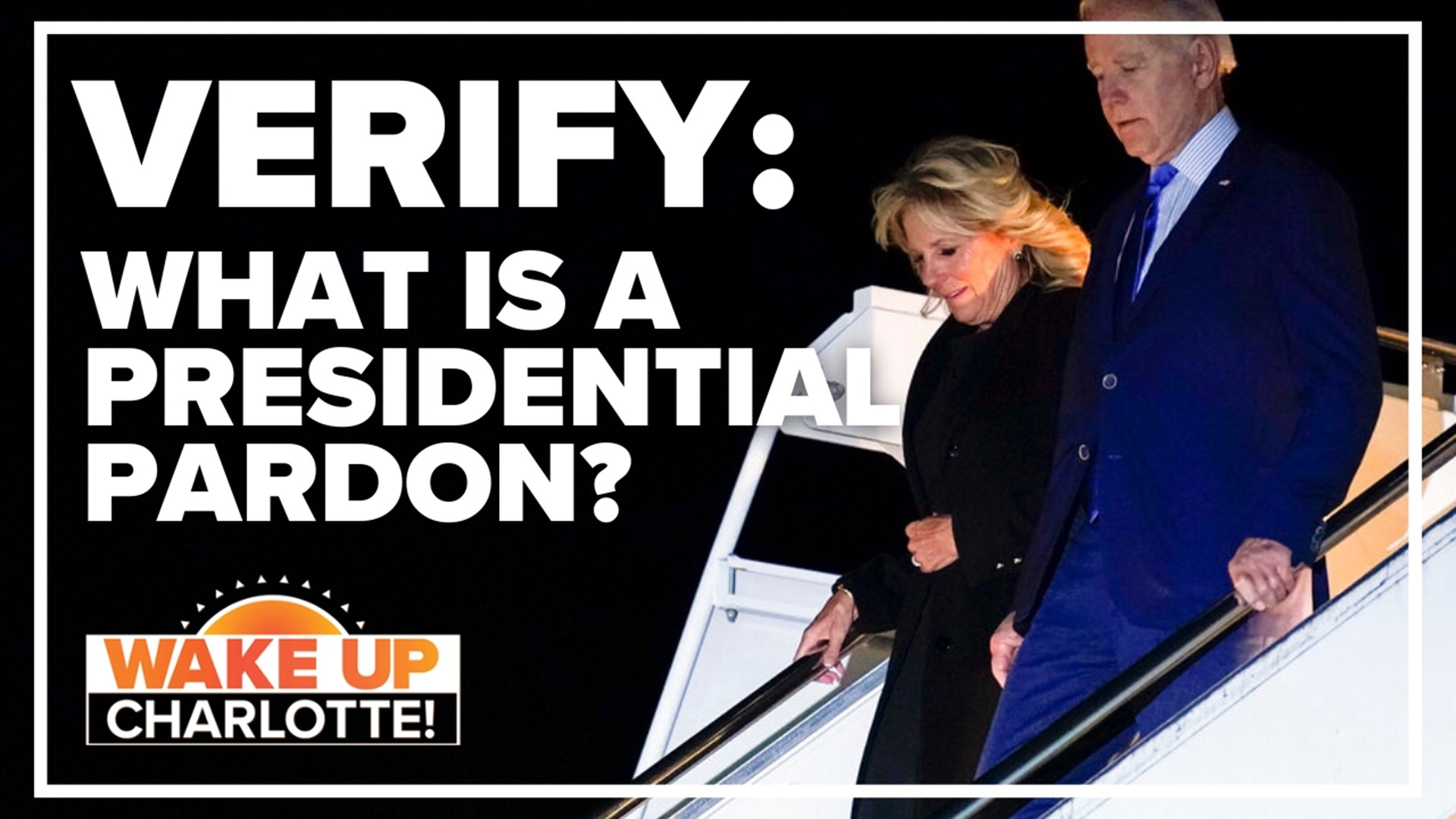CHARLOTTE, N.C. — President Joe Biden recently announced a presidential pardon for all prior federal offenses of simple possession of marijuana.
The White House said more than 6,500 Americans will benefit from Biden's executive action. Since Biden's announcement, VERIFY has received questions about what a pardon means and what makes a presidential pardon different from an expungement or exoneration.
THE QUESTION
What is a presidential pardon? What makes a pardon different from having someone's criminal record expunged?
OUR SOURCES
WHAT WE FOUND
First, there's the basic question: What is a presidential pardon? The Justice Department describes a pardon as when the president's forgiveness is granted in recognition of the applicant's acceptance of the crime.
A presidential pardon doesn't wipe away the criminal record, but it does restore the rights that defendants lose when they're convicted of certain crimes, like the right to vote, sit on a jury or hold elected office.
"There is a federal pardon that the president can grant and that's only for federal offenses, and there are state-level offenses that the governor can grant," Mauney said.
There are two types of pardons in North Carolina that only the governor can hand down, Mauney explained. The governor can either grant a pardon of forgiveness or a pardon of innocence.
"The only pardon that has happened since 2001 is the pardon of innocence 16 times," Mauney said. "The pardon of innocence under our state statutes allows the person who has been pardoned to apply to the court for an expungement, which means having the record taken off."
Ronnie Long, a Concord man who spent 44 years in prison for a rape he didn't commit, received a pardon of innocence from Gov. Roy Cooper in 2020. Cooper announced on Oct. 7 that he is looking into the legality of pardons for convictions of simple possession of marijuana. A task force Cooper appointed in 2020 previously recommended that the General Assembly make the move, but it failed in the most recent session.
Mauney says if a person is pardoned, the offense will stay on their criminal record unless they apply for it to be expunged. If it's expunged, then it will be cleared for your record, almost like it never happened.
"Under most circumstances, you can tell someone, 'I have never been arrested or convicted' if you have expungement, but there are certain types of jobs and certain situations where if you were asked, you'd have to tell them what happened," Mauney explained.
Meanwhile, there is no official process for exoneration. That's a term people use for those who are convicted but later found innocent, or if their criminal record is expunged.
"If exoneration means the slate is wiped clean, the only way to go about that is an expungement process or what we could call a pardon of innocence," Mauney said.
He says there are different processes for pardons and expungements, and the best thing to do is talk to an attorney to really understand the process.
VERIFY is dedicated to helping the public distinguish between true and false information. The VERIFY team, with help from questions submitted by the audience, tracks the spread of stories or claims that need clarification or correction. Have something you want VERIFIED? Text us at 704-329-3600 or visit VERIFY.

